#brazil division ^-^
Explore tagged Tumblr posts
Text


Me and my friends’ hypmic sonas
#brazil division ^-^#still kind of a wip cause I haven’t figured out some of the mics’ themes#procreate#character lineup#hypmic#hypnosis microphone#hypmicsona#hypmic oc
2 notes
·
View notes
Text
BRICs: United or Divided?
youtube
BRICs: United Front or House Divided?
youtube
0 notes
Text
Seeing the news on that Australian senator had me thinking on how “race” is thought by different cultures. I agree that blood quantum is very racist, only losing to the one drop of blood whiteness rule. But being from Brazil, where race isn’t decided by your actual ancestry, but rather by your phenotype (which leads to interesting differences with the rest of the world. Light skinned Arabs are white, for example), it was quite shocking to see the aboriginal communities accepting anyone with ancestry into their identity group, even if they don’t have the look
#i actually think Brazil is an incredibly interesting instance of racial dynamics#how do you classify ppl in a society that is so intrinsically mixed? In the shallowest way possible purely by appearance#but that also helps us to get over the imaginary barrier of race as well - when you’ve got ppl in the same immediate family#belonging to different racial demographics (such as a black mom with a white daughter and grandson)#you start to understand that racial division and delineation is completely baseless#‘there’s only one race - the human race. everything else is ethnicity’ is the message my generation grew up with in school and pop culture#and I think it couldn’t be more right#and I remember this stumping my Japanese friend who said that for them not only is race real but the Japanese people are a specific race#in and of themselves#which she vehemently disagreed with - in her view that is no remarkable difference between East Asians#there is no*#I do not know enough to comment either way
0 notes
Text
Pundits keep claiming that there are no trans men competing with other men. In reality, there are dozens of amazing trans men playing in the men's leagues, including some impressive Olympic athletes. Here are 5 trans sportsmen who recently joined men's divisions:


Japanese champion boxer Shindo Go generated much interest when he announced he was rejoining the ring in the men's division after transitioning. He just had his first trial fight in December, narrowly losing (29-27) to his opponent. He's set to return professionally this year!

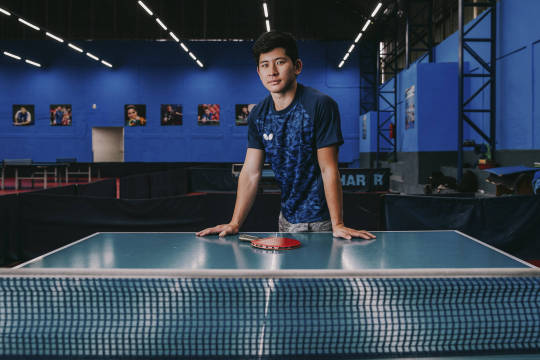
Brazil's champion table tennis player Luca Kumahara began playing against other men in December. He quickly became a finalist in a national competition, defeated only by the championship winner. The 29-year-old trans man is currently providing commentary at the Olympics after playing in the 2012, 2016, and 2021 games.
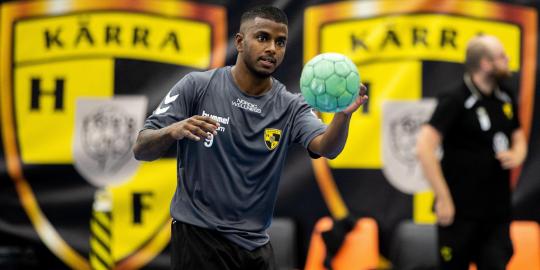



Loui Sand is a Swedish handball player. He thought he would have to retire in 2019 when he transitioned but Kärra HF contracted him to play on the men's team shortly after! Unfortunately, like too many trans athletes, he had to end his career early in 2022 due to harassment.

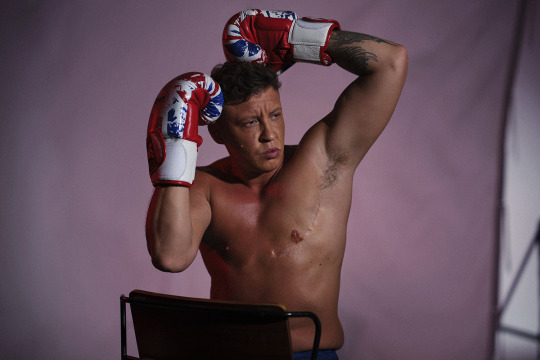


Danny Baker started boxing when he was just 14. After transitioning in his 20s, he became Britain's first professional trans boxer in the men's division. He's already won several matches against cis men and continues to fight his way up the ranks!




Finally, fencer Bobbie Hirsch joined his college men's team last year as their first trans male fencer. He placed in the NCAA regionals only weeks after starting. I want to highlight Bobbie because, like many other young trans men, he will undoubtedly make history with his athletic skills.
Know anyone else who didn't make it onto this list? Let me know in a comment or reblog!
2K notes
·
View notes
Text
Fantasy Guide to the Army
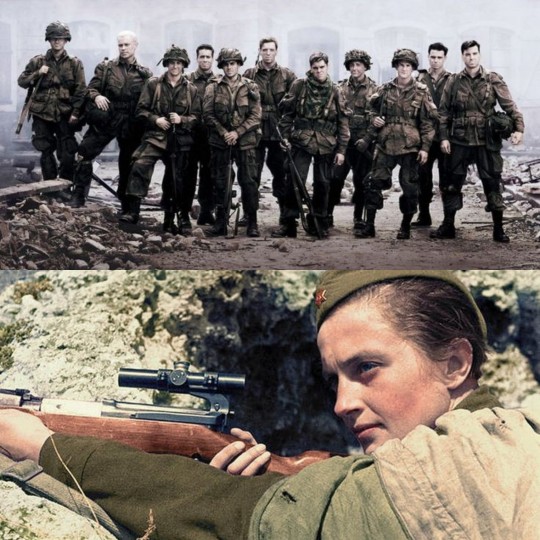
I have been asked to do this post for quite a long while and I finally got around to it. This guide is a basic guide, you may need to do further research into specific armies across the world. Armies are a necessary part to any world building, so what do we need to know about them?
(PS I had planned to include air force and navy but I am just one person and I cut myself, and the read more link, some slack)
Ranks
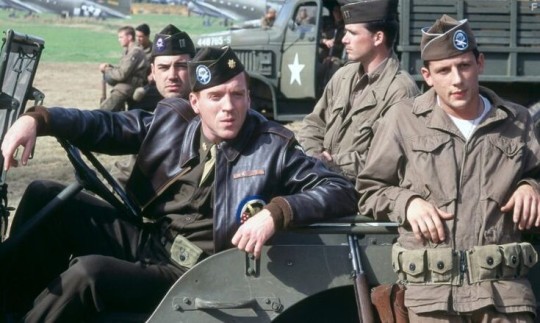
Field Marshal (FM) The Field Marshal is the highest rank of within the Army. The rank of Field Marshal was often granted in times of war (a general must have committed an act of valour, i.e. a victory). The rank can sometimes be used as a divisional command rank or brigade command. The UK, Austria-Hungary, Afghanistan, Germany, India, and Pakistan use the rank as a reward for achievement. Spain and Mexico use it for divisional command while countries such as Portugal, France and Brazil for use it for brigade command. The rank of Field Marshal is a "five star" position. The rank does not exist in the US army. They are addressed as Field Marshal Surname. Their insignia is two crossed batons surrounded by yellow leaves set under a crown.
General (Gen.) A General is the commanding officer of an army or army corps. It is currently the highest rank granted in most armies today, it is a 4 star position. A General is in charge of commanding large units, they are in charge of making strategic decisions for the army, oversee major military operations, manage the needs of the army. They are addressed as General Surname. Their insignia is four stars (US, France, Germany, Russia) and a sword and baton crossed under a crown and a star (UK). Lieutenant General (Lt.Gen) Lieutenant General commands an army corps or a division (tens of thousands of soldiers). They are also involved in strategic planning. They also hold positions within the Ministry of Defence/Equivalents. They would often serve as advisers to the government and aid Generals. It is a 3 star position and they addressed as Lieutenant General Surname. Their insignia is three stars (US, Germany, France, Russia) and a crossed sword and baton under a crown (UK)
Major General (Maj.Gen) Major General is a general officer in the army, responsible for leading and operational roles. They would command divisions of tens of thousands of soldiers. They support the officers above them, helping with strategy, executing the strategy, oversee the training of their units. They are addressed as Major General Surname. They are a 2 star position. Their insignia is a crossed sword and baton with a star (UK) and two stars (US, Germany, Russia, France). Brigadier General (Brig.Gen) Brigadier General is a one-star general officer in the army. They command brigades (3,000 to 5,000 soldiers), assisting Major Generals in tactical planning and coordination of operations. They are addressed as Brigadier General Surname. Their insignia is one star (Russia, Germany, US,), two silver stars (France) and s crown and three stars (for the UK, stars are known as pips). Colonel (Col) Colonels command brigades of about (3,000 to 5,000 soldiers), they are senior staff officers who both provide leadership to their units which are sometimes specialised agencies, such as task forces. Colonels are addressed as Colonel Surname. A silver eagle (US), a pair of diamond pips under a crown (UK), three silver pips upon shoulder braid with silver braid (Germany), three gold pips on a shoulder board with golden braid (France and Russia). Major (Maj) Majors command units of around 120 officers. They are in charge of the training and welfare of their soldiers, administrative duties within the barracks and within their unit. They are the primary staff officer in brigades. They assist superior officers in planning and executing missions and tactical plans. The Major is referred to as Major Surname. Their insignia is 2 gold stars on a shoulder board with golden braid (Russia, France) 2 silver pips on a shoulder board with silver braid (Germany), a crown (UK), a golden oak leaf (US)
Captain (Cpt) Captains lead companies usually around 50-200 soldiers. They are often the second officer in a company working alongside a superior officer. They are responsible for operations in the field such as ensuring equipment is kept up to date and in good condition, offering logistic support, and managing their troops. Captains are addressed as Captain Surname. Their insignia is two silver bars (US), three pips (UK), three silver pips on a shoulder board with silver braid (Germany), three golden pips on a shoulder board with gold braid (France, Russia) Lieutenant (Lt) Lieutenants command a platoon (about 30 odd soldiers). They are in charge of overseeing the training and discipline of their soldiers along with ensuring their welfare. They will participate in missions under the command of a superior. Lieutenants are addressed as Lieutenant Surname. Their insignia is two golden stars on a shoulder board with gold braid (Russia, France), two silver pips on a shoulder board with silver braid (Germany), two pips (UK), one silver bar (US) Second Lieutenant (2/Lt) The Second Lieutenant leads smaller units, working with enlisted soldiers. They are crucial in the training of soldiers, they maintaining personnel records and manage the resources needed for a mission or the units welfare. They would be addressed in conversation as Lieutenant but referred to as Second Lieutenant in dispatches and in correspondence. Their insignia is one gold bar (US), one pip (UK), one silver pip on a shoulder board with silver braid (Germany), one gold pip on a shoulder board with gold braid (Russia, France)
Enlisted Men
Warrant Officer 1st Class (1/WO)This is the most senior non-commissioned rank. They focus on discipline, prisoners, ammunition supplies and various technical and non-combatant services. In the UK, they often hold the rank of Regimental Sergeant Majors (RSMs) and are appointed by the Secretary of State Defence while in the US, the Secretary of the Army appoints them. They are addressed as Mr/Ms/Mrs Surname or Chief. Their insignia is one silver bar and a black square (US), the royal coat of arms (UK), four silver pips on a shoulder board with silver braid (Germany), three gold chevrons and a gold star (France), two gold stars on a shoulder board with golden braid (Russia) Warrant Officer 2nd Class (2/WO) The Warrant Officer Second Class would do similar jobs as the WO1, but they handle the below regimental section. Warrant Officer Class 1 (WO1). WO2s can be referred to as Company Sergeant Majors (CSMs) or Squadron Sergeant Majors (SSMs) (depending on their unit). They take roles within training, discipline and aiding the Warrant Officer Class 1 (WO1). Addressed as CSMs/SSMs and as Mr./Mrs/Ms. Their insignia is one gold star on a shoulder board with gold braid (Russia), Three golden chevrons (France), three silver pips on a shoulder board with silver braid (Germany), crown (UK), silver bar with two squares (US). Sergeant (Sgt)The Sergeant are responsible for the soldiers under their command. They oversee their team, acting as mentors and supervisors to their soldiers. Sergeants are over a squad of 10 soldiers. They are responsible them, from performance, prepare them for combat and their needs. They are addressed as Sergeant Surname. Their insignia is three chevrons (US, UK), two silver pips on a shoulder board with silver pips (Germany), two golden chevrons (France) and three golden chevrons (Russia). Corporal (Cpl)Corporals lead small squads of soldiers, no more than . Corporals are in charge of the training of their soldiers and ensuring that they are up to standard. They handle all the paperwork for their squad such as records. Corporals will accompany their soldiers on missions, leading patrols and overseeing their soldiers in the field. They are usually responsible for large pieces of equipment. They are addressed as Corporal Surname. Their insignia two chevrons (US, UK), one silver pips with shoulder board with a silver braid (Germany), two gold chevron (France, Russia). Lance Corporal (L.Cpl)Lance Corporals help Corporals lead their teams, acting as their second in command. They are in charge of disciplining, mentoring and leading their squads. They are also in charge of large weapons. They are addressed as Lance Corporal Surname. Their insignia one golden chevron (Russia, France), none/one silver pip (Germany), one chevron (UK) and one chevron with crossed rifles (US) Private (Pte)Privates are the lowest rank in the army. They will have just come out of training with the basic skills of a soldier. Privates are given tasks by superior officers, must obey the orders given and are usually given the more hands-on tasks, such as maintenance of weapons and their camp. They are addressed as Private Surname. Their insignia is one chevron/none (US), no insignia (UK, France, Russia, Germany).
Non-Commissioned Officers vs Commissioned Officers
You may have often heard the term "non-commissioned officer" if you have ever watched any war media. The difference is that Commissioned Officers receive their rank via a formal document signed by a high-ranking official, such as the monarch or a political leader. The Commissioned Officers are usually Lieutenants, Colonels, Generals, Captains, Majors. They are responsible for giving orders and making decisions. Non-Commissioned Officers are promoted from the enlisted ranks, gaining their promotion on skills alone. They are in charge of discipline, training and carrying out orders. They are usually ranked among Corporals and Sergeants.
Jobs within the Army

No army is just made up of officers and their soldiers. An army is like a town on the move, there are hundreds of different tasks that must be undertaken to ensure the army is fed, transported, kept in line and kept equipped.
Medic: Medics are the first responders for wounded soldiers, they administer first aid, medication and medical care to the soldiers in their unit. Medics are usually NCOs.
Chaplain: Is a soldier with some religious or spiritual calling that administers last rites, confession, spiritual guidance and solace for soldiers. They will see to soldiers of all creeds and faiths.
Artillery Crew: The Artillery Crew handle the maintenance and inventory of artillery weapons and related equipment. NCOs with training in the handling of artillery.
Military Police: The Military Police are force within the army that keep soldiers in line, maintain order and arrest any soldier caught doing a crime on the job. Always NCOs.
Intelligence: This is the information post, which involves fact gathering, recording and study of information needed by the army to mobilise.
Quartermaster: The quartermaster manages the distribution and gathering of all the things needed for the army from uniforms to equipment for the soldier's packs. Usually NCOs.
Mess Officer: The Mess Officer oversees the Mess Hall, managing the staff as they cook and prepare the army's meals. The Mess Officer would also be in charge of budgeting, inventory, health and safety and providing meals timely. Usually an officer, Captains and Lieutenants.
Adjutant: Is an officer who acts as an assistance to a superior officer taking on secretarial duties such as paperwork and arranging their diary. Usually a Captain or a Major.
Combat Engineer: The Combat Engineer is in charge of maintaining and building fortifications. NCOs with specialised skills in the field.
Logistics: Logistic Specialists handle the supplies, equipment and arranging transportation. NCOs.
Armourer: The armourer is in charge of weapons and ammunition. They handle any repairs needed and see to the safe storing of these valuable items. NCOs.
Communications Specialist: These Specialists handle communications, the communication equipment and its maintenance. NCOs usually with previous experience or training.
Mechanics: Mechanics are in charge of the maintenance of vehicles and machinery. They handle repairs, do check ups, offer support in the field and ensure everything is in good shape. NCOs with training and skills in the area.
Equipment
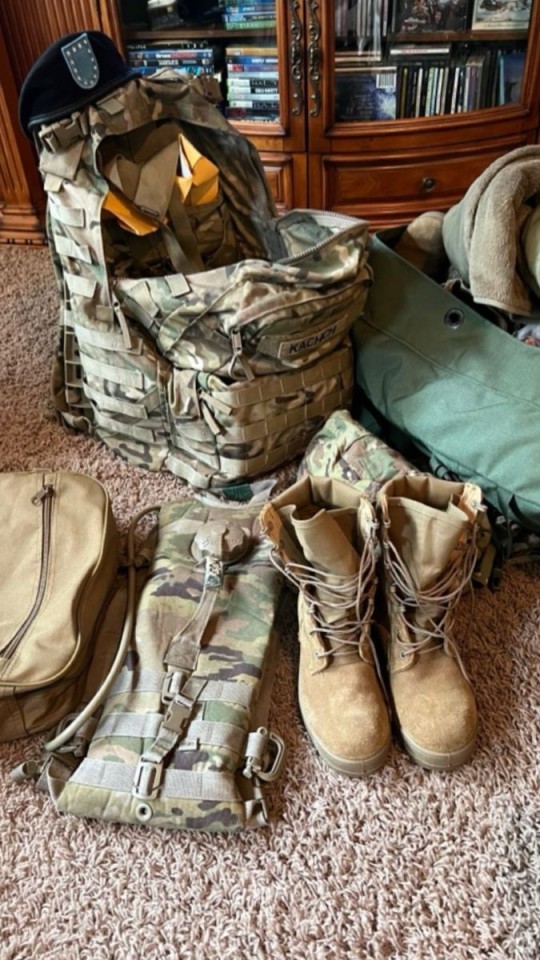
The soldiers will not be going into any situation without equipment - at least, not at first. Equipment is like gold dust in the field, especially if a unit is within enemy territory or the supply chain cannot be relied upon. Soldiers may often turn to thievery in order to resupply themselves with ammunition, weapons, supplies and even boots. In WWII, the newly formed company the Special Air Service - the SAS - actually raided their allies for supplies.
The soldier would carry essential supplies when they are first deployed. These would include (may vary):
Flasks/Canteen: Or some sort of drinking container. A soldier will need to hydrate if they don't wish to die-dydrate on a long march. They may also carry water purification chemicals such as iodine.
First Aid Kits: All soldiers will carry the basics of a first aid kit. This would include bandages, gauze, burn ointment, tourniquet, pain relief (not the good stuff), scissors and tweezers.
Knife: It is always handy to have something to cut things with.
Gun Cleaning Tools: Soldiers will have the equipment to care for their weapons. An uncared for weapon is an invitation for death.
Ammunition: A soldier would carry ammunition with them.
Entrenching Equipment: Something to dig with, usually a collapsible shovel.
Rations: Soldiers may often carry some sort of food with them, usually of the preserved kind.
Some form of shelter: Soldiers may carry something to shelter themselves such as a sleeping bag, a tent, a blanket.
Signal Mirror: Soldiers carry signal mirrors to send visual signals to communicate with others.
Toiletries: Basic hygiene items.
Weaponry
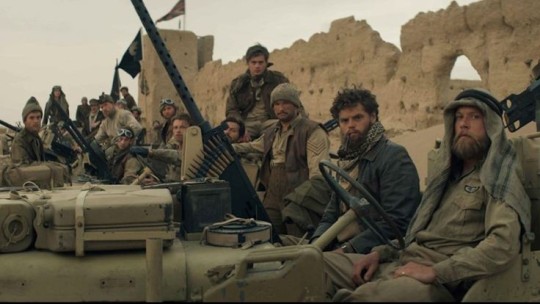
Soldiers will not only just need equipment to survive on the field. Soldiers will carry all sorts of weapons on them. It was up to the soldier to care for the weapon and ensure it is up to scratch. Ammunition, of course, doesn’t grow on trees and nor do weapons. Weapons and ammunition like supply I mentioned above could often be “liberated” from the enemy or even unwitting allies. Every soldier will carry:
A rifle: This is the long-range weapon carried by almost all soldiers. They will use this in combat, especially if fighting from a fixed position.
A handgun or a pistol: Most soldiers will carry a secondary gun. These guns are useful in tight spaces or close combat.
Bayonet: A knife or blade that is attached to the rifle. This allows a soldier to stab the enemy with their rifle.
Combat Knife: A knife used in combat.
Mortar: This is a short-barrelled artillery piece. It is used to fire shells at steep angles.
Hand Grenades: These are handheld explosives carried by soldiers. They have a delayed fuse, meaning that they are useful as both a long-range weapon and as a close-range weapon – one could leave one behind as a present. They are typically activated by pulling the pin, flinging it away from the body, toward the enemy and denoted.
Uniforms
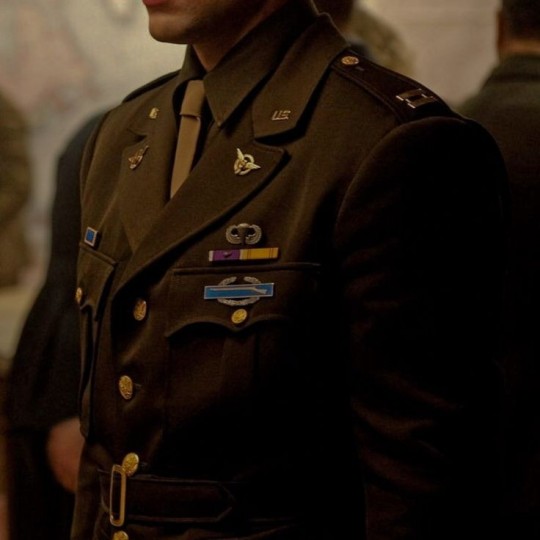
Above in rankings, we went through the insignia which is the symbols on one's uniform that denotes your rank and place in the hierarchy of things. Soldiers will be inspected every day to ensure their uniforms are up to standard and will face the wrath of superiors if their uniforms are unkempt and their appearance not up to the mark. Every private learns how to shine their own boots, sort out their own uniforms and are responsible for looking their best. There are different kinds of uniform for a soldier.
Casual Uniform: This uniform is comprised of a more casual uniform, made up of a tunic/shirt, trousers and boots. Certain units will wear caps and berets denoting their unit and rank as well. Combat Uniform: This is worn on the field. It will often reflect the climate the soldier is going into, so will be light and heavy depending on the weather. A soldier would wear a combat jacket, trousers, wear a helmet, wear their identification tags/dog tags. These would be in mute colours, usually khaki or camouflage. Service Dress Uniform: This is worn during official duties and formal events. It comprises of a dress shirt, tie, peaked cap/beret, creased trousers and a jacket with their insignia, unit symbols and medals. Dress Uniform: This is worn during very formal ceremonies. A formal jacket pinned with ribbons, embroidered insignia and the medals of their achievements and commendations, creased trousers, dress shirt and tie, polished shoes and a formal hat cap/beret.
Life of a soldier (On Base and in the Field)
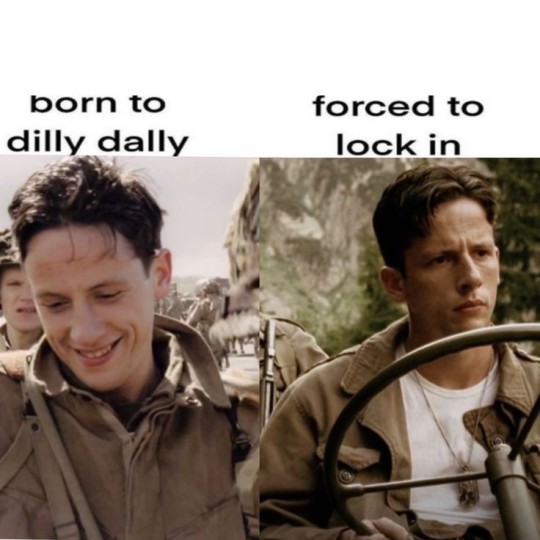
Soldiers on active duty will be expected to manage many tasks, not just firing at the enemy or storming enemy beaches. Soldiers are expected to fulfil maintenance work, defence, offence, administrative duties (if needed), engineering and communications.
On Base: A soldier’s day will be planned right down to the second. They will get up at a certain time, have an allotted time to get ready and tidy up their bunk, report to various drills and participate and have a list of duties to undertake within the day. These duties involve maintenance on base, helping with any office work, guarding and patrolling, doing specialised tasks such as helping in the infirmary. Most privates will do the grunt work, anything hands on or labour intensive while officers will see to training soldiers or paperwork or supply management.
In the Field: The life of a soldier in the field wasn’t as regimented as on base – it can’t be, since most soldiers won’t have the exact same day especially in battle or marching from place to place. But every soldier will have certain duties to undertake. Of course, fighting will be included, some soldiers would take it in shifts to man a fixed position or to engage the enemy or to participate in missions into new or enemy territory. Soldiers would take their place “out on the line”, patrolling the edges of their camp to ensure they can’t be crept up on. Soldiers will erect camp every night they aren’t marching which includes the putting up of tents, digging of latrine pits, building fortifications. Soldiers not out on the line or engaging the enemy will spend their time at camp either helping in the mess hall, in the infirmary or keeping the camp ship-shape. Soldiers may often be sent out to “forage” (*cough, cough* steal) whatever they need such as food.
The Realities of the Army
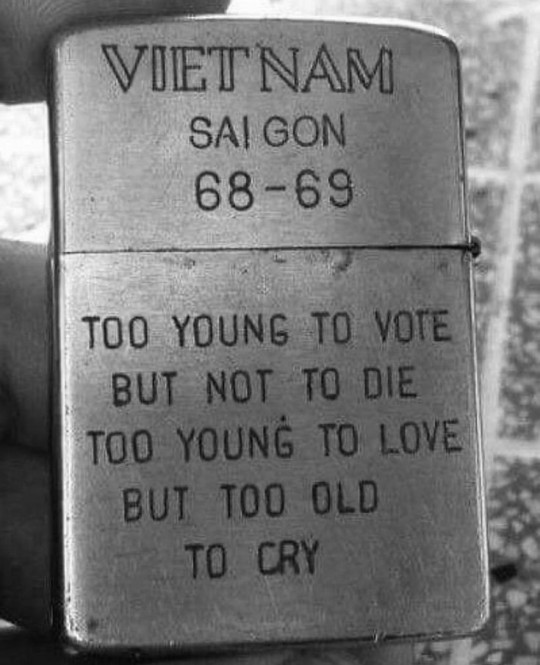
Good vs Evil. Yes, sometimes the army are the heroes. But in reality, war is a grey area. No army in the world is wholly bad or innocent. Every single army on earth has committed war crimes and every army has had to make decisions which some would find morally reprehensible. The point is that painting an army as the good guys or the bad guys in your narrative can’t work because it isn’t realistic. You can of course highlight these issues by the actions of a few soldiers while still retaining the antagonists and the heroes. You can of course pit the ideals of both sides in a war together, to firmly push your reader toward the good guys vs the bad guys. But the reality is a simple one: all armies kill, all armies steal and all armies destroy.
Civilian vs Soldier: The Reality Civilians suffer at the hands of their own army as well as the enemy. Civilians often had to deal with soldiers taking their crops, livestock and overtaking their homes in searches for food, shelter and resources. Enemy civilians would also put up with pillaging, looting and in some cases death, assault and sexual abuse. It is of course against protocol to harm civilians but things do happen in theatres of war.
The Army vs the Soldier
While the army expects a lot out of the soldier as an induvial, the army can often fall short of their duties to that soldier. This can be unintentional, for example supplies can get lost or stolen. But there are instances where soldiers and their needs are sacrificed for the greater good. They maybe passed over for supplies or reinforcements for another unit. They may be placed in difficult circumstances without any hope of relief. They may not have the equipment needed to fight their battle or stay alive. Sometimes, armies even shot their own soldiers for insubordination, ex. In WW1, many soldiers on all sides were shot by their own for “cowardice” – this may have been the case, but some cases involved soldiers who were suffering from PTSD.
Choice vs Obligation vs Threat Why do soldiers fight? What makes somebody join the army? Sometimes it is the search of opportunity, of a place, of rank and a purpose. But sometimes, going to war isn’t the choice of the soldier. Drafts and conscription make military service compulsory for certain age groups and genders. In peacetime, soldiers are enlisted voluntarily in most armies while some countries have compulsory service time even in times of peace. In some wars, criminals in prison were offered the chance to serve in the war as penance for their crimes. There are of course instances when one is threatened or forced into an armed force.
The Effects of War on the Soldier War changes people. The things soldiers see and have to do within war and training will inevitably change them as people. Sometimes, the change is positive, the army has been named by many people as the thing that straightened them out and have them structure. The army sometimes allows soldiers to travel and gain access to opportunities and education that they may never have had access to before. But undeniably, war has negatives effects on soldiers and civilians. Soldiers may suffer from PTSD, depression, suicidal thoughts and feel a disconnect between themselves and their old lives. Soldiers often find it hard to return to their life after the war, especially in radically different settings with people who don’t understand what they have been through. This can lead to substance abuse issues, alcoholism, problems with the law and troubles within relationships among family and romantic partners. Soldiers of course can get injuries while in war or even in training. Loss of limbs, damage to the brain and other organs, broken bones, burns, shrapnel injuries and of course gunshot wounds are all common. Soldiers often get ill while in the field, such illnesses including typhoid, hypothermia, trench foot, dysentery, malaria, pneumonia etc. These are caused by the close living quarters and the often-sub-standard living conditions. Soldiers would often be at risk for pests such as lice and fleas because of their living conditions. Soldiers may often face problems with nutrition, might suffer from dehydration and starvation especially if supplies are scarce.
The Geneva Convention
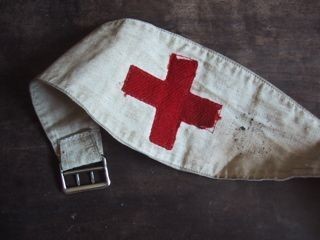
Your world may not include the Geneva Convention, may pre-date the Geneva Convention or Geneva may not be a place within your WIP, but I include this here so you might have a fair idea about the “rules” of modern warfare. This is just a brief version.
Medical personnel are not to be specifically targeted in operations.
Medical facilities and equipment is not be targeted in operations
Any wounded soldiers or civilians are to be treated, despite allegiance.
Prisoners cannot be tortured or harmed in any way
Prisoners must be fed, well-kept and treated for any injury
Prisoners are not under obligation to tell their captors anything but their name, rank and other personal information – this is so they can be recorded and all information must be recorded and sent to the captured soldier's officers
Prisoners must be allowed to communicate with family and friends.
Prisoners have the right to receive any packages or mail.
Prisoners have the right to access the services of the Red Cross, who cannot be prevented from visiting and inspecting them
Prisoners who are seriously wounded or ill must be released
Any religious figures are to be captured and released as soon as possible
Soldiers cannot take hostages, they cannot pillage, they cannot take slaves.
Soldiers must abstain from humiliating and degrading any captured soldiers or civilians.
Reprisals against civilians and other soldiers are forbidden.
Group punishment is not permitted (Yes, that one teacher did break the Geneva Convention)
Prisoners can be tried by their captors, but they are entitled to a fair trial.
All POWs shall be released at the end of conflict
At sea, hospital ships cannot engage in war.
Any shipwrecked crew on a ship must be rescued despite allegiance.
Children, pregnant women, mothers with very young children, the elderly, the sick and wounded who are imprisoned for a long time, must be released as soon as possible.
Surrendering soldiers, civilians and civilians who participate in acts against an army cannot be harmed and must be taken alive.
The use of weapons to cause suffering, say a non-fatal wound or mutilation is prohibited.
It outlaws indiscriminate attacks on civilian populations and destruction of food, water and other materials needed for survival.
The destruction of resources that could affect the population such as poisoning the water supply is not permitted.
Certain infrastructure cannot be destroyed or targeted. This includes dams and nuclear stations. Cultural landmarks and religious landmarks are also to be spared.
Recruitment of children into the armed forces is prohibited.
The use of certain symbols such as the Red Cross in order to deceive the enemy is prohibited.
Civilians who do not take part in combat are to be treated respectfully. They are protected from violence from soldiers.
Children and vulnerable people are top-priority to be evacuated to safe havens as soon as possible. All efforts will be made to reunite them with family.
The targeting of civilians and anything that sustains their well-being such as food sources is prohibited.
Military Terminology

This is by no means a full list but these are the most commonly used terms.
Boots on the ground – to physically be in a location
Inspection - a superior officer takes formal note of appearance, condition of living area and weapons.
Drill – a practise in various manoeuvres, marches, procedures
Pass - leave to have some free time, sometimes off base.
Off base - away from military barracks
Tour of duty – the period of time which an action is completed in.
Civvies – Civilian clothing
Detail - a specific task undertaken by a unit or soldier
Mess hall - dining facility
Latrine - toilet
Latrine duty - digging a Latrine pit or cleaning the facility
Flanking - Attacking an enemy formation from the sides
Envelopment - surrounding the enemy from multiple sides
Penetration - breaking past the enemy’s front lines
Reconnaissance by Fire - Firing at positions that may be occupied by the enemy to provoke them into returning fire (so you know where they are)
Ambush - Attacking from concealed position
Retreat - go back the way you came (DO NOT COLLECT €200)
Feigned Retreat - Pretending to retreat and then attacking the enemy
Perimeter - boundary of fortified area
No Man's Land - the space between front lines
Contact line - where opposing sides meet to fight
Supply line - the route the supplies get from base to the field.
Front line - the furthest out troops are place on the line, this is where the most intense fighting happens
Barracks - sleeping quarters in base
Foxhole - a dug position in the ground
Combatant: A person actively engaged in fighting.
Non-combatant: A person not engaged in a conflict.
Civilian: Somebody who is not a member of any military unit.
Militia: Civilians who are armed and trained to fight.
Guerrilla: Small, independent units that takes up arms against an armed force. Very effective.
Saboteur: Somebody who deliberately sabotages equipment and supplies.
Spy: Somebody who gathers information about the enemy.
Operative: A soldier who carries out a specific task.
Mercenary: A soldier for hire
Contractor: A person or a group of people who are hired to provide advice, services and additional support to the army and their operations.
Conscription: Compulsory enlistment.
Enlistment: Joining the army.
Exercise: Simulated military practises or manoeuvres for training.
War game: Simulated war fare for training.
Mission: The operation.
Objective/Target: The objective of the mission.
Campaign: Multiple operations.
Down Range – being within the combat zone
In-Country – being within in a war zone
Quarters – can mean one of two things either it is a medic's order to stay in the camp or barracks or military family housing.
Squared away - to fix
Siege: Where one army sits outside a fortified town or position and tries to claim it.
Convoy: A large group of vehicles such as trucks, jeeps and tanks travel together. It is harder to target more than one vehicle.
Escort: More vehicles and soldiers who accompany a convoy.
Strike/Assault: Attacking the enemy.
Counterattack: An attack to respond to a previous attack
Rear: Behind the formation
Front: Before the formation.
Line: The formation.
Column: The formation in a line.
Formation: The arrangement of soldiers
Deployment: Soldiers moving to a position.
Redeployment: Sending soldiers to another position.
Mobilization: Readying soldiers, their supplies and equipment for deployment.
Demobilization: The disbanding of soldiers after an operation.
Reserve: Soldiers and equipment held back. This is usually to conserve soldiers and supplies for emergencies or shortages.
Reinforcement: More soldiers and equipment sent to the soldiers on the line to bulster their efforts.
Casualty: Death, injury, missing.
KIA: Killed in action.
MIA: Missing in action.
Surrender: Yielding to the enemy.
Ceasefire: An agreement to cease hostilities.
Armistice: A temporary stay of fighting.
Battalion: A large unit of soldiers. Usually in the range of 300 upwards to 800 or so soldiers.
Regiment: A unit made up of several battalions.
Division: A military unit (10,000-20,000)
Corps: A unit, (20,000-50,000)
Theatre: The place where military operations are undertaken.
Engagement: A battle or a conflict with the enemy.
Manoeuvre: Planned movement.
Logistics: The planning of moving soldiers and equipment to soldiers.
Ordnance: Supplies.
Artillery: Large-calibre firearms.
Infantry: Soldiers who fight on foot.
Reconnaissance: Gaining information about the enemy and their positions.
Tactical: Planning and implementation the military strategies.
Strategic: Planning and directing strategies.
Operational: The following through of military operations.
Command/Control: The authority to direct military operations.
Communications: The passing of information between units, base and HQ.
HQ: Head Quarters
Intelligence: Information about the enemy
Counterintelligence: Preventing the enemy from gaining information about the army, such as the famous Operation Mincemeat.
Camouflage: The use of material or paint to hide oneself from one’s enemy.
Fortification: Defensive structure
Entrenchment: Digging trenches or foxholes.
Garrison: Military station.
Bivouac: A temporary camp, but this camp is without no cover. This means no tents or shelter.
Dog Tags - Metal identification tags worn by soldiers
Patrol: Soldiers will leave camp or their positions to walk within their boundaries
Raid: Attacking on the enemy’s position.
Zero Dark Thirty - Early as fuck, from 0100 hrs to sunrise.
Copy - I understand
Unit - can mean any organisation in the military
Platoon - a section within a company made up of 30-50 soldiers
Contact - Engaging with the enemy
Tactically Acquired - Stolen
Squad - a smaller faction of a company
CO - Commanding officer
XO - second in command
Hang Fire - wait for the next set of orders
Demilitarized Zone - a place that is no go for military equipment, weapons and soldiers
AWOL - Absent without leave
PT - Physical Training
Skivvies - ones undergarments
Active Duty - Full time duty in active service
As You Were - Go back doing whatever you were doing or standing how you were standing
BOLO - Be on the Lookout
CP - checkpoint
Bunk - Bed
Ruck - backpack
Smoked - physical punishment for an infraction.
Zone of Action - a specific part of the tactical area.
About face - a manoeuvre where a someone or a group turn to face the opposite direction.
POW - Prisoner of War
POW Camp - facility to house POWs
Halt - stop marching/moving
Present Arms - salute, typically by presenting one's weapon or raising the right hand to the forehead
Parade Rest - stand with one's feet shoulder-width apart, hands folded behind their back
Fall out - break formation
Fall in - get into formation
At ease - stand in a more relaxed position
Attention - stand upright, heels together, back straight, shoulders back, arms at the sides.
Books and Media I recommend
Band of Brothers (HBO, Limited Series)
Beyond Band of Brothers by Dick Winters
Band of Brothers by Stephen Ambrose
M*A*S*H
The Unwomanly Face of War by Svetlana Alexievich
Lady Death: The Memoirs of Stalin's Sniper by Lyudmila Pavlichenko
The Six Triple Eight
Some Desperate Glory: The First World War the Poets Knew by Max Egremont
Poems of the Great War 1914-18
Poems of the Great War by Wilfred Owen
Poems of the Great War by Siegfried Sassoon
Poems of the Great War by Robert Graves
Poems of the Great War by Rupert Brooke
Poems of the Great War by David Jones
SAS Rogue Heroes (BBC)
SAS: Rogue Heroes: The Authorised Wartime History by Ben MacIntyre
Saving Private Ryan
All Quiet on the Western Front by Erich Maria Remarque
All Quiet on the Western Front
Private Peaceful by Michael Mupurgo
War Horse by Michael Mupurgo
Road to War by Valerie Wilding
The Trenches by Jim Elderidge
D-Day by Byran Perett
D-Day by Ben MacIntyre
Japan's Pacific War by Peter Williams
Operation Mincemeat by Ben MacIntyre
War Nurse by Sue Reid
Helmet for my Pillow by Robert Leckie
With the Old Breed by Eugene B Sledge
Hacksaw Ridge
D-Day Through German Eyes: How the Wehrmacht Lost France by Jonathan Trigg
Platoon
Britain’s Secret Defences: Civilian saboteurs, spies and assassins during the Second World War by Andrew Chatterton
If You're Reading This...: Last Letters from the Front Line by Sian Price
A Bridge Too Far
Firepower in Limited War by Robert Scales
Storm of Steel by Ernst Jünger
Dunkirk
The Things They Cannot Say: Stories Soldiers Won't Tell You About What They've Seen, Done or Failed to Do in War by Kevin Sites
1917
On Artillery by Bruce Gudmundsson
Letters From Iwo Jima
Das Boot
The Longest Day
Come and See
War Horse
#Yes this is long#I am not sorry you asked for this post and I delivered#I shall rest now#and yes I am aware there are some gaps in my military knowledge but I did my best#writing#writeblr#writing resources#writing reference#ask answered#writer#writing advice#spilled words#writer's problems#writer's life#Fantasy guide#fantasy guide to the army#the army#writer's guide#writer's help#writing resource#writer reference#writer resource#writing hep#writing guide#writers#creative writing#wtwcommunity
604 notes
·
View notes
Text
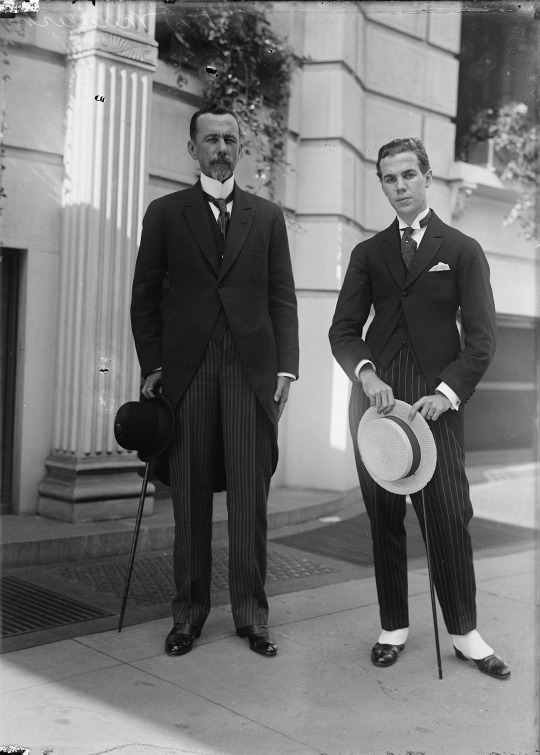
1916 Lauro Severiano Müller, minister of foreign affairs of Brazil. Envoy from Brazil to return visit of secretary root (photo by Harris & Ewing)
(Library of Congress Prints and Photographs Division)
150 notes
·
View notes
Text
A Week and A Half
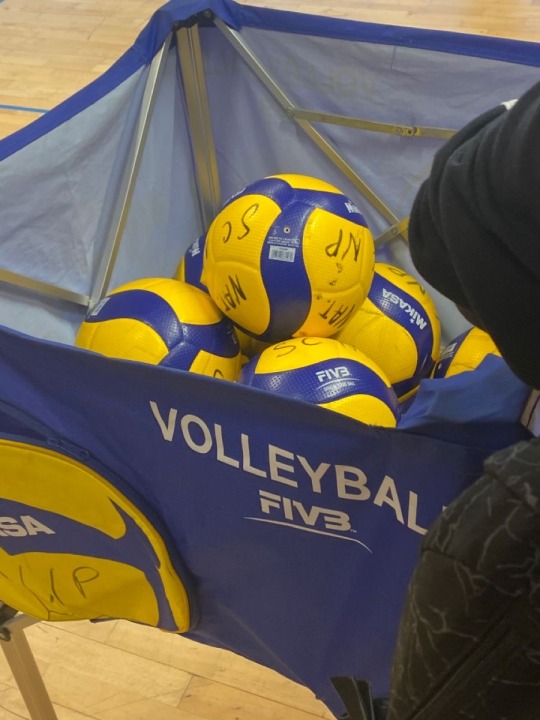

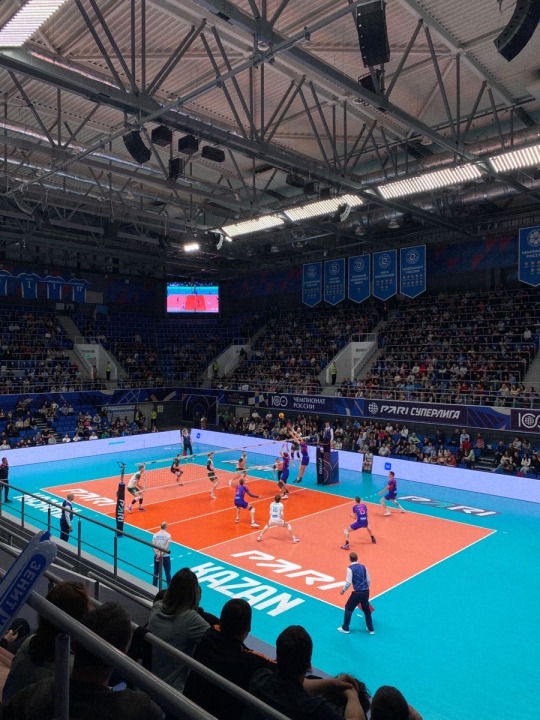
Synopsis: You’re in Brazil for Nationals, supposed to be resting, but volleyball’s your life. When a stray ball nearly hits Minjeong, a carefree traveler with a camera, your worlds collide. She’s spontaneous, you’re all about routine, but somehow, you find yourself drawn to her. For a week and a half, you step out of your comfort zone, sharing laughs, street food, and moments that feel like they could last forever—until reality pulls you back, and she’s gone.
Minjeong x Male reader !!
Word Count: 3,108
Is he a robot?” one of the bystanders muttered, eyes locked on you as you launched into another brutal spike across the sand.
It was supposed to be your rest day—no drills, no pressure. Just sun, ocean breeze, and time off during the team’s trip to Brazil for Nationals. But you? You couldn’t stop. Volleyball wasn’t just a sport—it was your pulse. Even on an off-day, you were diving for saves, jumping like gravity didn’t apply to you, playing like there was still a medal on the line.
A small crowd had formed along the edge of the beach court, tourists and locals alike drawn in by your movements—quick, clean, powerful. The ball barely touched the sand when it was your turn to hit.
“No doubt about it, he’s stupidly good at volleyball.”
“You haven’t heard of him, have you?” one asked, eyes still tracking your form.
“Not really. Why? Is he famous or something?”
The group huddled closer, curiosity piqued.
“That’s Y/N—Division 1 player from Korea,” someone said, tone half in awe.
“He’s the number one candidate for the Olympic team this year. A beastly outside hitter. Been carrying games since he was in high school
She weaves between the courts, unaware of the game happening just a few feet away. You’re so focused, eyes locked on the ball mid-air, setting up for the perfect spike.
But the ball doesn’t land where you expect. With a quick whoosh, it’s heading straight for her—too fast for her to notice.
“Look out!” someone shouts.
Before she can react, the ball’s almost upon her. But you’re quicker. You move in, your hand extending to catch it mid-flight.
She stumbles, eyes wide with surprise, her balance thrown off. But just in time, you reach out, grabbing her wrist with ease, steadying her before she can fall.
Her eyes meet yours, startled but grateful.
Minjeong (laughing lightly, eyes bright):“Whoa, that was close. You could’ve knocked me out with that thing
“Sorry, I didn’t expect it to go that far,” you say, lifting her gently, trying to mask the awkwardness of the situation. There’s a moment of quiet between you two as you both linger for a second longer than needed, the connection feeling a little more charged than it should.
“It’s alright,” she replies with a soft smile, brushing off the situation with an easygoing laugh. Her eyes light up with curiosity as she looks at you. “What’s your name?” Her tone is warm, relaxed, inviting you into the conversation with no pressure.
“Y/N,” you answer, a little unsure, still adjusting to her lighthearted energy.
“Nice to meet you, Y/N. I’m Minjeong! Kim Minjeong,” she says, extending her hand with a bright grin, clearly enjoying the moment. She’s playful, not bothered by the unexpected encounter at all.
Before you can reach for her hand, the sounds of your teammates approaching fill the air. They’re clearly excited, and you can already hear the teasing in their voices.
The team arrives in full gear, but they notice you standing away from the court and immediately start whispering and glancing in your direction. They can’t help but be curious about why you’re not still playing.
Seojin noticed you and Minjeong, and calls out teasingly, “Oh, look at Mr. Robot here, finally taking a break from his perfect game to make some friends!” His tone is playful, mocking you lightly as he and the others close the gap.
Teammate #2 laughs, nudging you with a smirk, “We didn’t know you were training off the court too, huh? Who’s this?” He’s clearly trying to provoke a reaction, but his voice carries a touch of amusement.
Teammate #3, acting overly surprised, chimes in with a mock gasp, “Wait, wait, what’s going on here? Is our star player turning into a social butterfly?” The teasing is relentless, but it’s all in good fun.
You can feel the heat of embarrassment creeping up, but you try to keep your cool, rolling your eyes at the playful banter. Minjeong, however, laughs along, clearly enjoying the teasing. It’s not uncomfortable for her; she seems genuinely entertained, her bright smile showing she’s not fazed by your teammates’ curiosity.
“I was just about to ask him the same thing,” she says, her eyes twinkling with amusement. “He’s a beast on the court but seems pretty quiet off it.” There’s a teasing edge in her voice, but it’s lighthearted, almost as if she’s discovering something new about you. She’s completely unbothered, making it feel like less of a big deal than it should be.—
—You try to shake off the teasing, a small grin tugging at your lips despite yourself. “I… don’t usually take breaks,” you admit, glancing at your teammates with a resigned sigh. “But apparently, they think I need a few lessons in having fun.” You shrug, accepting the joke, but you’re also secretly relieved that Minjeong’s there to keep the mood from getting too awkward.
“Well, Minjeong, if you’re sticking around, you better teach him how to relax,” Seojin says with a teasing grin, his voice light and fun. “We’ve been trying for months!” His words are full of humor, but there’s a genuine note of affection behind the teasing—like he wants to see you loosen up for once.
You can’t help but roll your eyes at Seojin’s comment, but you smile, knowing he means well. Minjeong, on the other hand, seems perfectly at ease in this moment. Her gaze softens as she looks at you, clearly amused but also understanding
After that encounter, you found yourself back on the sand, volleyball in full swing with your teammates. Minjeong lingered on the sidelines for a bit, camera in hand, casually watching. She seemed more amused than impressed, maybe just enjoying the scene.
“Didn’t expect to find a whole tournament here,” she said, shielding her eyes from the sun. “You guys are actually good.”
You just gave a small nod, wiping sweat from your brow.
The crowd around the court only grew after that. People were drawn in by the fast-paced plays and the sharp chemistry your team had. It wasn’t long before the matches turned into a full-on wager. Seojin, of course, was behind it—he always was. Betting on your team became routine, and more often than not, you walked away with your pockets heavier.
Another day, another handful of bills. The sky began to dim, and the matches ended with quiet handshakes and tired laughs.
After the match, as your team caught their breath and collected another round of winnings, Minjeong approached you with her usual bright smile.
“Hey, Y/N!” she called out, waving a little. “I’m gonna go now—there’s still so many foods I have to taste and sceneries I need to capture.” You just nodded, watching her adjust the strap of her camera before she turned around and melted into the crowd. A fleeting presence—just a quick conversation, the kind that happens once and doesn’t return. And just like that, she was gone. The sun dipped lower, painting gold over the sand, and the game carried on.
It was around 8PM when the aftermath of your little “money-making scheme” finally caught up to you.
You and your teammates were lined up in the hallway of the inn, backs straight, faces to the wall. Classic punishment pose. Apparently, word got around that your volleyball matches had turned into full-blown gambling events, and your coach wasn’t exactly thrilled. Seojin, of course, didn’t help—he somehow managed to rope the whole team into taking the fall with him.
Some guys were laughing, joking about how ridiculous it was. Others? Not so much. Time was ticking, and standing there felt more like a waste than discipline.
Then, you spotted her.
Minjeong. Just passing through the corridor, camera slung around her neck, a bag of street food in one hand. She looked surprised to see you standing like that, and you couldn’t help it—you peeled off from the wall, slipping away like it was nothing.
“Hey!” one of your teammates hissed. “Y/N, come back here! Don’t make coach lengthen the time we have to stand here!” But you were already walking toward her.
You made your way through the dimly lit hallway, the buzz of vending machines and distant chatter echoing behind you—until someone jumped out from the corner.
“Were you following me, creep?” Minjeong teased, her voice light, smile mischievous. “Didn’t know you’d be staying here.”
You didn’t even flinch, just blinked at her. “Yeah. A week and a half. You?”
She grinned, eyes sparkling under the warm light. “No way. Same. A week and a half too.”
“What room?”
“112. You?”
You tilted your head. “113. Seriously?”
She laughed, nudging your chest gently. “Guess the universe has some plans for us.”
“Stop that,” you muttered, though the corner of your lips tugged into a smile. “What’s that in your hands?”
“Street food,” she said, holding up a paper bag that was warm and slightly greasy. The scent of grilled meat and spices hit you immediately. “Saw a stall on the way here. Want some? Let’s go in my room.”
You hesitated. “I’m not going into a stranger’s room…”
She raised an eyebrow. “What can a 5’5 girl do to a 6’6 guy? Plus, your room’s across the hall.”
“…Fair enough.”
You followed her inside.
Her room was a mess. Not in a gross way—but in a way that felt lived-in. A hoodie tossed on the chair. Travel brochures poking out of an open backpack. Shoes by the door, mismatched socks. A couple wrappers by the nightstand. And yet… it smelled clean. Soft. Like sunlight through cotton curtains. Like citrus shampoo and something warm you couldn’t name.
Minjeong plopped down on the edge of the bed, tossing you a skewer from the bag. “Careful, it’s still hot.”
You sat across from her on the floor, legs stretched out, the food resting between you. Her camera was nearby, a few Polaroids scattered beside it—shots of sunsets, beaches, alleys lit with fairy lights, a blurry photo of a laughing stranger.
You took a bite. It was spicy, sweet, smoky. “Okay, you were right.”
“I always am,” she said casually, reaching for another bite. “So, volleyball star, huh?”
You shrugged. “I play. I jump. I sweat. Rinse and repeat.”
She giggled, soft and genuine. “That’s one way to describe it. You’re good though—I saw you earlier.”
You glanced at her. “Were you watching?”
She gave you a knowing look. “Hard not to.”
There was a pause. Not awkward—just still.
The kind of quiet that settled in like a soft blanket.
You ended up talking for hours. About your teammates. About her trips. About how she wanted to try everything once, even things that scared her. You found yourself telling her things you didn’t normally say out loud. And she listened. Really listened. Like your words had weight.
And when you looked at her—really looked—she wasn’t just the girl who jumped you in the hallway. She was a memory waiting to happen.
And in that messy little room, with your fingers sticky from sauce and laughter still clinging to the walls, something unfamiliar but warm bloomed in your chest
After that night, things just… kept happening.
She’d knock on your door at random times, always with something new in her hands—a bag of snacks, a weird souvenir, a half-watched movie on her tablet. “Let’s chill,” she’d say with that grin, already tugging at your sleeve before you could even answer.
Sometimes, you’d drag your feet and pretend you didn’t care. Other times, she’d pull you into her room like it was routine. It kind of was, now.
One night, she opened a small, worn case on her bed. Inside, pinned with delicate care, was a collection of butterflies—vibrant wings frozen in mid-flight, labeled with tiny handwriting. “I found these during an expedition in the Amazon,” she said, brushing her fingers lightly over the case. Her eyes lit up as she talked—about the humid air, the noise of the jungle, how long it took her to spot a rare blue morpho.
You took a step back.
“What?” she asked, catching the shift in your expression.
“I, uh… don’t do bugs.”
That became her favorite thing about you.
From then on, she teased you mercilessly—holding the case a little too close, pretending to chase you around the room with one of the paper tags. “Big volleyball guy scared of little wings? Pathetic.”
You’d scowl, but she’d laugh so hard she’d snort, and somehow that made it worth it.
Sometimes, she’d hand you her portable console. “I suck at this game. Your turn.”
It was a volleyball game—of course.
And somehow, for someone who hadn’t touched a console in her life, she still talked trash with full confidence. You’d whoop her every time. She blamed your “unfair advantage,” yelling things like, “You’ve literally lived this!” while trying to block your spike with the wrong button.
You never denied it. You just smirked, that stupid, growing smile of yours hiding behind the controller.
But it wasn’t just about the wins or the teasing.
It was the way time moved differently when you were with her. The hours felt shorter. Her room felt warmer. And your chest? A little lighter
The end of the week and a half was creeping in like the last few rays of sunset. Both of you felt it, even if neither of you said it out loud.
So when Minjeong asked if you wanted to eat at this one restaurant she’d been dying to try, you didn’t hesitate—well, except when it came to your coach. The man was known to be stricter than concrete, but to your surprise, he gave a nod and said, “Don’t be late.”
It almost felt like he knew. Like he saw something.
Your teammates did, too—judging by the endless teasing and not-so-subtle smirks as you left in your casual jacket and joggers. Minjeong, in her light summer outfit, lilac skin catching the golden hue of the Brazilian dusk, looked like she walked out of a memory you didn’t even know you had.
The night was warm. Alive.
You strolled through the streets, soaked in the buzz of the city, stopping when people recognized you—mostly fans who asked for pictures, and Minjeong, without a word, would always be the one holding the camera. She didn’t mind. In fact, she smiled brighter than the flash. She looked proud.
You caught yourself thinking—this is nice. Different. Refreshing. Being out of your routine was rare, but being with someone who lived to wander made it feel… right.
The food was great. The conversation better.
And by the time you both returned, standing in front of your neighboring doors with fingers naturally intertwined, the moment was already bittersweet.
“Well… it was short,” she said with a smile that didn’t reach her eyes, “but I enjoyed it.”
She gave your hand a gentle squeeze. “Let’s keep in touch, Y/N.”
You nodded, and for a second, the idea of staying crossed both your minds.
But reality sat between you.
She had her skies.
You had your court.
Neither of you could give those up—not even for each other.
The next morning, her door was closed. Quiet. Empty.
She was gone.
You stared at it for a little too long, heart dipped in silence. The day dragged on. Even your teammates noticed the mood shift. On the bus, on the bench, even when you won nationals—your biggest high—it felt strangely… muted.
But she kept her promise.
You’d get messages—photos from Peru, Morocco, Nepal. Her grin in every frame. Sometimes blurry, sometimes stunning. Sometimes? Just a bug she thought would gross you out.
You never said it, but you smiled every time.
You’d send her training videos, sweaty and tired, captioned with things like “Guess who aced 10 straight serves today?”
And she’d always reply, “Proud of you, volleyball boy. Don’t forget to stretch.”
It was the finals. The locker room buzzed with tension and energy, mostly thanks to Seojin yelling like he’d already won the championship. “We’re on fire, bro! Five in a row, let’s make it six!” His voice echoed against the cold tiles, shaking off whatever nerves were left.
You were calm—but focused. The crowd outside was roaring. Thousands packed in, all screaming your name. Signs, chants, camera flashes. The air felt heavy with expectation.
First set? You lit it up—3 out of the first 5 points were yours, and Seojin slammed in the other two. 25–17. Easy.
Second set? You went off. Every touch, every swing—clean. 15 points in a single set. It didn’t even feel real. Final score? 25–11. Some of the opposing players shook their heads like the game was rigged. Maybe it was. Maybe it was just you.
Third set rolled in and the energy peaked. You stepped back for a serve, locked in—and then… a flicker.
Blonde hair in the crowd.
Your hand hesitated just enough for the ball to hit the net. A rare miss. Some boos. Some gasps. But you didn’t care—not really.
You scanned the stands, heart suddenly racing—not from the game, but from the maybe. And there she was. Row 3. Blonde tied back in a low ponytail, cap pulled halfway down. But you knew that face anywhere.
Minjeong.
After that? You were unstoppable. Whatever weight was on your shoulders lifted. You crushed the last few points, and with a final block at the net, the gym exploded. You’d done it. Won the match. Secured the national spot.
But the noise around you faded.
You saw her pushing through the crowd, soft and steady, cutting through the chaos like the world made space for her.
You didn’t even think.
You ran.
Right into her.
And when you hugged her, tight, sweat and adrenaline still fresh on your skin—everything went quiet for a second.
Like home wasn’t a place.
It was her
#kpop#aespa#aespa winter#winter aespa#winter#winter x male reader#winter x reader#winterxyou#kim minjeong#aespa minjeong#minjeong x reader#minjeongxmalereader#aespa x reader#fluff#Spotify
93 notes
·
View notes
Text
Ok. So it's cannon that Behemoth's third attack was on New York. This isn't a plot hole, but there is a lot we don't know about it. And it was almost certainly a major turning point, the first city in the global north to face an endbringer attack. Yes the cape death count had been high before, but Behemoth's previous attacks were in Iran and Brazil, places where the average American doesn't give thought to.
Now, the reason why I'm making this post is mostly because I've lived in NYC my entire life, so it's interesting to speculate on what the one confirmed enbringer attack was like. I know enough about New York to know what a Behemoth attack on here might be like. If anyone else lives somewhere with a confirmed enbringer attack that isn't elaborated on I'd love to see your theories on what happened.
So, this is what I think the attack was like:
First off. We have cannon information on Earth Bet's New York during Weaver/Skitter's career. So we get an idea of how it effected the city. We know that New York still is the most populated city in America, and we know that it's still the center of a lot of the American economy. That is to say; we know that whatever Behemoth did it didn't completely destroy New York, neither as a population center or an economic center. So my theory for what the attack was like has to take into account that this is something that the city bounced back from by 2011.
We also know that Behemoth (and the enbringers as a whole) gain new tactics over time. This is his third attack, he's not going to be as advanced as he was when we see him during his final attack on New Delhi. We also know what enbringers want: to cause devastation upon humanity and to act as a worthy foe for capes. He's not a rampaging monster who doesn't know where he's going, and he's not a millitary weapon trying to destroy the tactically optimal target. He has a plan, but it's a plan that's based on fighting capes and causing terror.
So I don't think Behemoth emerged in Manhattan. We'd see more of its effects on the city if he did. And more importantly, it's an island, and he's the land based enbringer. He might be able to emerge on a small island is he really wants to, but this is his third attack. However, there is a part of New York that's attached to the mainland, and that's the Bronx, and that's a much better target for him for several reasons, not just the land thing.
Now, the Bronx, being the only mainland borough of NYC, has suburbs right next to it (also, to make some of what I say make sense later, I should probably clarify that the Bonx is NYC's northern edge). The Bronx is also New York's poorest and highest crime borough, and the suburbs just to the north of it are some of the richest suburbs in the state. You basically have a low income urban area, and a high income suburban area right next to eachother. This is important to what I think Behemoth's attack did, he knows about humans, and he's actively designing his attack around class division, and how humans react when people of different classes die.
So, on March 26th, 1994, nearly a year after Behemoth attacked São Paulo, Behemoth emerges just north of NYC, somewhere around Yonkers. Americans dismissed his earlier attacks on Brazil and Iran as third world problems, and now he's just emerged in a wealthy suburb. He's emerged on a Saturday when most people are in their homes getting a higher kill count then he otherwise would. If anyone does work weekends they likely lose their spouse and children in the attack. This is probably the first time the enbringers are really taken seriously by the American public.
He then moves downward ti the city proper, attacking the Bronx. Legend is probably the first cape he's up agaisnt, but others quickly join in. Either this is the first time the enbringer truce is really utilized, and we get villains in the enbringer fight for the first time, or it isn't a thing yet and we get villains profiting off of the endbringer fight. Behemoth makes it pretty far into the Bronx, possibly crossing the Harlem river, but the northern tip of Manhattan is similar enough to the Bronx that the difference isn't that important for the scope of this theory. Most of the Bronx and northern Manhattan is evacuated by the time he gets there, possibly with cold war era fallout shelters and subway stations being used in place of the shelters that would later be built. There's a lower death count in the Bronx, but he's going for property destruction here more then anything, especially as the capes don't have all that much knowledge as to how to minimize dammage. Eventually Behemoth is fought off, possibly being dunked in the Hudson or East River (if so that's probably where the High Priest shard got the idea for Leviathan).
Now the more important part is the after effects:
On Yonkers; the suburbs in that area just don't exist anymore, it's just a massive black pit north of the city. The exact demographic of Americans that Americans tend to mourn died, and the economy is hurt by the fact that the only way to access New York is either by water or through Jersey.
On the Bronx or Northern Manhattan the effects are far longer lasting. The best comparison I can think of is post leviathan Brockton Bay. Countless of the poorest in the city have lost their homes and business. Many who have nowhere to go end up homeless, and many who don't have work after the attack turn to crime. Villains who used to have territory in the effected areas move elsewhere in the city, likely ending up intruding on either previously safe areas, or areas that other villains have claimed, so there's a lot of gang wars in certain areas of the city. There's also a lot of places in the Bronx and/or Northern Manhattan that don't have things like water or power, and/or are effected by Behemoth's ash and radiation. There's probably certain neighborhoods that are considered uninhabitable that are resettled anyway that have residents die due to the environmental effects. And other neighborhoods that are abandoned due to the destruction but that fill with squatters.
Basically in conclusion Behemoth's effect on the Bronx is similar to that of Robert Moses.
#196#the behemoth#behemoth worm#endbringers#wormblr#worm web serial#worm by wildbow#worm theory#worm thoughts#worm parahumans#worm wildbow#worm rambles#worm posts#worm spoilers#worm fanfiction#parahumans#nyc#new york#new york city#the bronx
104 notes
·
View notes
Text



ノ [00] INTROS (t. oikawa x f!reader)
fic m.list . next
+ content: swearing, suggestive, angst, fluff, crack, kys/kms jokes, manga spoilers for timeskip
i fucked up kageyama’s jersey number (he’s #20) and i also fucked up y/n’s jersey number (#12 is taken by shoko hirugami) haha oops
guys i beg ignore the microsoft emojis its a long story 😢😢

nonchalantly living life 🥱







y/n:
goes to the university of tokyo after graduating from niiyama joshi and majors in film production. also plays as the starting setter for the division 1 team, hikari pharmaceutical red rabbits.
tobio kageyama:
both of you were invited to the all-japan youth camp in your first year of high school and met each other during dinner on the first day. you remained in touch after the camp and eventually became close friends.
hitoka yachi:
you were introduced to her in your second year of high school by kageyama and became friends. both of you share a lot of the same classes in university. you two are on a trip to brazil together to visit hinata and get some inspiration for a film project.
yuu nishinoya:
your inseparable platonic soulmate. the bestest of besties. not a single day passed without talking to each other after kageyama introduced you to him in high school.
shoyo hinata:
he caught your eye in high school when watching karasuno’s matches and kageyama frankly would NOT shut up about him. became good friends pretty quickly.
kei tsukishima:
finds you tolerable




ethically sourced slut + da boys





tooru oikawa:
plays for CA san juan, and is currently visiting brazil.
hajime iwaizumi:
currently in irvine, studying sports science at uci
mattsukawa:
silly #1
makki:
silly #2





© kxttqi — do not repost, copy, translate or steal my works without permission.
#✧; kat's journal#haikyuu smau#haikyuu#oikawa tooru#oikawa smau#oikawa x reader#oikawa x you#oikawa x y/n#haikyuu fluff#haikyuu texts#haikyuu x reader#hq x reader#hq x you#hq#hq smau#haikyuu oikawa#hq oikawa#oikawa fluff#oikawa tooru x reader#oikawa toru x reader
60 notes
·
View notes
Note
I like to think that while yes, the US is notorious for being pretty forgiving towards other nations and Alfred would absolutely be the same way, he’s still very much capable of holding a grudge.
So every once in a while he’ll - for seemingly no reason - refuse to acknowledge the existence of England, France, and Brazil for 2-3 weeks straight. And suddenly he really likes hanging around Austria/Russia/Turkey/The Netherlands/N. & S. Italy (more than usual)
Why the sudden hostility? The civil war. Wha can I say, it really fucked him up and he likes being petty sometimes. This has also happened several times throughout history no matter the conflict
Honestly I’d find it weird for Alfred to hold a grudge over the Civil War considering the confederacy was never formally recognized due to Lincoln warning it would be a declaration of war.
That being said I don’t think the Civil War is a pleasant memory. I head cannon that Alfred experienced temporary paralysis in his legs as a literal manifestation of the division between the North and South, plus overall poor health ‘cause I mean, he was on the precipice of dramatic change.
I think Alfie holds a lot of contempt and def holds a grudge but not about the civil war, he can only blame Americans for that lol.


heres one old doodle and one new doodle for Civil War-era Alfie
#my art#hws america#hetalia#axis powers hetalia#historical hetalia#aph america#hetalia world stars#vulp asks#hehe ty for the ask gives me an excuse to talk abt this hc#my hc
99 notes
·
View notes
Note
hi Caden, I was wondering if you had any recommendations on the topic of the insanity defense during trial, tests of "psychological fitness" in the framework of the criminal law, the idea of "responsibility for the insane", or the division between prisons and asylums for those accused of crimes?
yeas there's literally so much on this i forced myself not to list multiple books that cover the same geographic demarcation. like this is a huge topic lol. i don't have a singular global overview text in mind but if you have an area/time period you're interested in it's very likely there is at least some body of literature on criminal/forensic psychiatry in that context.
David W Jones (2017) Moral insanity and psychological disorder: the hybrid roots of psychiatry. History of Psychiatry (pp. 263-279).
Manuella Meyer (2022) Crimes of Passion and Psychiatry in Early Twentieth-Century Rio de Janeiro, Brazil. Journal of the History of Medicine and Allied Sciences (pp. 131-157).
Willemijn Ruberg (2023) Hysteria as a Shape-Shifting Forensic Psychiatric Diagnosis in the Netherlands c. 1885–1960. Gender and History (pp. 565-581).
Stefan Wulf (2020) „Schlagt das Hitlerei zu Brei.“. Medizinhistorisches Journal (pp. 47-74).
Christina Ramos (2022) Bedlam in the New World: A Mexican Madhouse in the Age of Enlightenment. The University of North Carolina Press
Perrault, Isabelle (2015) “Sans honte et sans regret”: Les chemins de traverse entre le pénal et le psychiatrique dans les cas d'aliénation criminelle à Montréal, 1920--1950. Canadian Bulletin of Medical History/Bulletin Canadienne d'Histoire de la Medecine (pp. 51-75).
Jonathan Metzl (2009) The Protest Psychosis: How Schizophrenia Became a Black Disease. Beacon Press
Jinee Lokaneeta (2020) The Truth Machines: Policing, Violence, and Scientific Interrogations in India. University of Michigan Press
Santiago Stucchi-Portocarrero (2018) Eugenics, medicine and psychiatry in Peru. History of Psychiatry (pp. 96-109).
Verplaetse, Jan (2002) Prosper Despine's Psychologie naturelle and the Discovery of the Remorseless Criminal in Nineteenth-Century France. History of Psychiatry (p. 153).
Dan Healey (2022) Bolshevik Sexual Forensics: Diagnosing Disorder in the Clinic and Courtroom, 1917-1939. Cornell University Press
Barras, Vincent (1991) Péripéties genevoises de la psychiatrie légale fin-de-siècle. Gesnerus (pp. 485-501).
Catherine L. Evans (2021) Unsound Empire: Civilization and Madness in Late-Victorian Law. Yale University Press
Júlia Gyimesi (2022) Epilepsy, violence, and crime. A historical analysis. Journal of the History of the Behavioral Sciences (pp. 42-58).
37 notes
·
View notes
Text

"2nd birthday Hitler, here we already are."
In honor of the 80 Years of the Brazilian Expeditionary Force
In 2024, Brazil commemorated the 80th anniversary of the creation of the Força Expedicionária Brasileira (FEB), a pivotal moment in the nation's military history. Established in 1943 during World War II, the FEB marked Brazil's significant contribution to the Allied forces, becoming the only Latin American country to send ground troops to fight in Europe.
The FEB's formation was a bold step, reflecting Brazil's commitment to the global fight against fascism. Under President Getúlio Vargas, the Brazilian government responded to the Axis threat by assembling a force that would eventually comprise over 25,000 soldiers. These troops underwent rigorous training before embarking on their mission to support the Allies in the Italian Campaign.
Deployed to Italy in 1944, the FEB joined the U.S. Fifth Army, engaging in critical battles across the Apennine Mountains. Their efforts were instrumental in breaking through the German Gothic Line, a formidable defensive barrier. Notably, in April 1945, the FEB achieved a significant victory by capturing the 148th German Infantry Division in Fornovo di Taro.
The 80th anniversary was marked by various events and tributes across Brazil. Museums hosted exhibitions showcasing artifacts and personal stories of FEB veterans, while military ceremonies honored their service and sacrifice. Educational programs and public discussions were organized to ensure that the legacy of the FEB continues to inspire future generations.
As Brazil reflects on the FEB's contributions, the nation pays homage to the soldiers who fought valiantly for freedom and justice. Their legacy is etched into the fabric of Brazilian history, serving as a reminder of the courage and resilience that define the country's spirit.
Today, remember that a scoundrel in Europe wanted to take away freedom from other nations, but free men crossed the Atlantic and showed otherwise.
#brazil#wwii#feb1944#brazilinwwii#feblegacy#history#historical facts#military#italian campaign#brazilian heroes
45 notes
·
View notes
Text
As tensions between India and Pakistan rose and then fell dramatically in recent days, the Indian government used the nation’s digital governance laws to compel Meta to remove news and posts related to the evolving story. It even urged the blocking of all Pakistan-origin content.
Governments around the world are behaving similarly, gaining more and more authority to request or require the removal of content and weaponizing these laws to force the takedown of rap videos, photos from protests, and much more. Accelerating this trend are companies’ incentives to avoid these requests in the first place by preemptively and quietly suppressing content they anticipate governments will find objectionable. In too many cases, moderation at the hands of private entities and governments is practically indistinguishable.
In India’s case, its IT Rules, as they are known, equip law enforcement agencies and other government bodies with the authority to request that social media companies take down user-generated content in the “interest of the sovereignty and integrity of India” and to hand over user data as well. They have been used before. In September 2024, cybercrime units within regional police departments used the law to request the takedown of content after a hashtag gained traction on Facebook and X blaming the Muslim minority in southern India for supposedly bringing animal fat-laden sweets to one of the largest Hindu temples in India. The hashtag helped heighten already strained tensions—but the situation was exacerbated by the opaque and poorly governed police agency response. Charges were filed against seven X users for incorrectly identifying the sweets as belonging to Amul, a large dairy chain, and regional police also ordered the removal of countless memes that proliferated in the aftermath.
As part of a larger project studying content moderation in the global south, we have found that a majority of frequent Tamil online service users suspect they have faced moderation to silence their opinions and political beliefs. Content creators, activists, and journalists we spoke with frequently reiterated these suspicions, which were corroborated by interviews with former platform representatives, who painted a picture of increasing collusion between governments and companies to suppress speech. While our research in this paper was limited to India and Sri Lanka, the tools and tactics we documented are appearing around the world. If platforms want to keep users and their confidence, they have to be more honest and transparent when governments influence moderation and how.
New legislation passed in Indonesia, Kenya, Brazil, Europe, and beyond has supercharged government officials’, law enforcement bodies’, and courts’ authority to request or require the takedown of specific posts or categories of posts. And companies are seeing these requests pile up: Facebook reported an exponential increase in government requests for content restrictions from 2023 to 2024, and Google told media that it fielded 87 percent more requests from governments to remove content across its services from 2021 to 2023. Indonesia’s MR5 regulation has resulted in more than 140 million orders just to Facebook to geoblock posts and comments, the majority of which were related to gambling but others were “divisive political speech.”
Managing government requests for restrictions has become a massive workstream at companies, but determining which requests are appropriate and which are not seems to be less of a priority. Gag orders, the mass layoffs of trust-and-safety staff, and the sheer volume of requests are pushing companies toward a compliance-at-scale approach rather than attempting to discern when a government request should be denied.
Apart from reducing costs, giving the government what it asks for may be politically expedient. Governments’ arsenal of influence over companies’ decisions goes beyond formal takedown requests. Content moderation policies and processes are increasingly becoming a bargaining chip that companies and governments are using to avoid future regulation, minimize liability, and generally keep business moving.
Talking to former platform trust-and-safety staff and moderators, we found that governments are influencing moderation in multiple ways. First, teams are modifying policies to hew more closely to government policies and preferences. Second, moderators are taking down speech proactively to preempt government requests entirely, including by taking down legally permissible speech that moderators think would be controversial. Other research has shown that moderators also rely on flags sent in by law enforcement bodies such as the opaquely named internal referral units that flag content violating private terms of service. Finally, companies invoke “break-glass measures” to supercharge moderation when governments exert extra pressure or threaten to shut down the platform. These informal methods are generally ad hoc and undocumented, sometimes with policy team members left in the dark, too.
Companies’ desire to appease and acquiesce to governments’ interests is not new, even if it feels more apparent than ever, but their increasing lack of transparency is. Ten years ago, CEOs touted their platforms’ role during the Arab Spring, aimed at toppling repressive government control, and broadly committed (even if only rhetorically) to human rights principles. It was common for platforms to push back publicly on governments’ content restrictions and publish requests they received on the Lumen Database, enabling the public and users to understand what their government was doing and promoting transparency about whether laws serve genuine safety or political agendas. Now, companies directly facilitate government action by removing posts and handing over user data and, according to our interviews, often without notifying the public or affected users.
Increasingly, users accuse social media companies of being arms of the government and preemptively taking down more content than even governments want at the cost of undermining social movements. Users also feel constantly monitored and second-guess why they use these social media services in the first place, particularly for speaking about political issues. In response, users develop circumvention tactics to evade scrutiny by cropping images, flipping letters, or using “algospeak” to avoid terms suspected to be shadowbanned, (for instance, talking about U.S. President Donald Trump’s immigration actions by using terms like “cute winter boots”), making good-faith moderation even harder.
By allowing and even encouraging further government capture, companies damage their own reputations, which can have repercussions, financially and otherwise. Predictable, trustworthy, and rights-respecting moderation processes have been linked with increased revenue for online services hosting user-generated speech; likewise, as X learned when it changed its policies after a change in ownership, erratic moderation can drive away users and advertisers. At the same time, investors are directly demanding greater accountability and respect for international human rights standards at annual shareholder gatherings.
Moreover, companies’ surrender to government demands can conflict with their obligations under the U.N. Guiding Principles on Business and Human Rights and their own stated commitments to human rights and user safety. With increased informal and indirect expansion of government scrutiny online and fewer spaces to speak outside the influence of governments, users are losing their ability to speak freely. What’s more, users lose the ability to exercise their right to seek remedy from their governments when they don’t know that government actors are the cause of their content being removed.
Companies can do more to earn users’ trust back.
First, they can consistently publish government orders where possible or ask that the government agency make it public, consistent with their human rights obligations. Academics, human rights advocates, and experts all rely on these notices to understand the breadth of influence both social media companies and governments wield on our information environment.
Second, they can notify users when their speech is moderated due to a government order or pressure. Users are often left in the dark and don’t know when their posts have been taken down due to a government order or scrutiny. That breeds conspiratorial thinking.
Finally, they can push back when orders from governments violate human rights. This is something most large social media companies have done before. Existing frameworks created by the United Nations and the Global Network Initiative enable trust-and-safety teams to weigh the trade-offs when facing demands.
Beyond individual government requests, companies should communicate with users more to assuage concerns of government scrutiny. Equipping users with the knowledge of what norms are expected online, how rules change, and who is scrutinizing their speech enables users to make more informed decisions about their online safety.
Ultimately, as companies and governments further back away from previously agreed-upon commitments to people’s liberties and rights, they are forgetting the users who make their platforms viable and successful. Companies should be on the side of users instead of doing governments’ bidding, particularly as governments themselves backslide on their commitment to protect their own. As one Tamil content moderator told us: “The platforms taking you down is actually a matter of inconvenience. The real danger is the democratic climate of the country.”
23 notes
·
View notes
Note
What are we making of this?
https://www.instagram.com/share/_cI2IXuMF
The Tifosi are one thing, management is a different story and the focus being on Hamilton from their side has been my biggest concern about him joining Ferrari.
We know how important a team’s backing is in the fight and I’m fed up of Ferrari not being the priority.
Anyway, it feeds nicely into the plot of Charles being overlooked in terms of WDC this year from basically anyone that is not a tifoso.
I’m putting to much of my mental health into him being successful this season so please give me a reality check.
I'm complete unworried, and the article linked even mentioned that "Right now, Hamilton holds a slight edge just because the intrigue and excitement of the past few weeks, but this fight is wide open. It's the most compelling intra-team battle F1 has seen in years.". Fred's Ferrari will back whoever is the quicker driver, plain and simple. Lewis has quite rightly been getting the media storm because he's LEWIS HAMILTON but pretty much all tifosi I've spoken to think Charles will dominate in the intra-team battle. And I trust tifosi because we're the ones who have actually been closely watching Charles for years, we know his driving skill is approaching that of multiple world champions (just from this past year: Suzuka, Monza, Austin, even Brazil he was managing to be super competitive in horrendous conditions). We know the only reason he wasn't competitive for the championship last year was because of the midseason Ferrari horrors where they completely fucked the car for some reason.
If I had to bet on the championship fight this year, I'm predicting a Charles/Lando fight. McLaren unfortunately still seems to have the best car, but I reckon that Ferrari only needs the second best car for Charles to win. I think Lewis may be competitive, but comparatively he'll be nowhere. Charles will definitely get a little bit of a villain edit, especially in British media, for it, but world champions are always divisive, so I can't complain.
39 notes
·
View notes
Text
Judge in Brazil orders slaughterhouses to pay for Amazon reforestation

A judge in the Brazilian state of Rondonia has found two beef slaughterhouses guilty of buying cattle from a protected area of former rainforest in the Amazon and ordered them, along with three cattle ranchers, to pay a total of $764,000 for causing environmental damage, according to the decision issued Wednesday. Cattle raising drives Amazon deforestation. The companies Distriboi and Frigon and the ranchers may appeal.
It is the first decision in several dozen lawsuits seeking millions of dollars in environmental damages from the slaughterhouses for allegedly trading in cattle raised illegally in a protected area known as Jaci-Parana, which was rainforest but is now mostly converted to pasture.
Four slaughterhouses are among the many parties charged, including JBS SA, which bills itself as the world’s largest protein producer. The court has not decided on the cases involving JBS.
Brazilian law forbids commercial cattle inside a protected area, yet some 210,000 head are being grazed inside Jaci-Parana, according to the state animal division. With almost 80% of its forest destroyed, it ranks as the most ravaged conservation unit in the Brazilian Amazon. A court filing pegs damages in the reserve at some $1 billion.
Continue reading.
#brazil#brazilian politics#politics#environmentalism#amazon rainforest#farming#image description in alt#mod nise da silveira
52 notes
·
View notes
Text
there are two ends of the table, and adriah is caught in between both.
one end is where he usually frequents, with his english-speaking teammates. they share a common tongue, an understanding of how it feels to live overseas and play for a foreign league. but when they start talking about their spouses and kids, that's when the commonalities stop, because at 28, adriah has only had one relationship that ended because his partner didn’t want to go long-distant.
so, he turns to the other end, where the younger, rowdier players congregate, except there's one problem: they speak japanese, and his own comprehension is similar to watching anime without subs - enough to understand the context, but not enough to respond intelligently.
and then there's inunaki, who sits across from him, alternating between gushing about his fiancée with meian and barnes, and egging hinata and bokuto to drink more. oh, to be bilingual enough to have such finesse over language. if adriah knew he'd play in japan, he would've studied japanese instead of french.
he looks at his phone, then at his glass, beer foam left along the rim. bar nights with the team can either be the most fun all week or the most isolating thing in the world. tonight, it’s the latter.
he stands. inunaki watches him. “bathroom?”
“just need some air.”
“okay.” laughter catches the libero’s attention, and he switches to japanese when he addresses miya. it’s frightening how he can easily code switch. adriah stuffs his hands in his pockets and slinks out of the izakaya.
the sky is dark, stars dimmed. he finds a bench not too far away and sits, phone out. it’s around 4 am back home. all the messages that he last sent to his friends and family were from him. he probably won’t hear back from them until the next morning. his sigh is long, throwing his head back to stare at the clouds.
when he’d gotten word that the black jackals accepted him, his family was overjoyed. they’d known how hard he’d trained to break into overseas teams, and to get accepted into a division 1 team after the first tryout is impressive. management helped him secure an apartment, prepared his papers, welcomed him to osaka. for the first few months, he got by using japanese that he picked up here and there, relied on the team’s bilingual staff, got close to the other players that spoke english. for the others, they managed to find some middle ground using gestures and simple words from both languages. it was fine.
and it still mostly is. some days, it’s easy. some days, it’s hard.
the izakaya door slides open and sounds of drunken salarymen and rowdy customers drift outside. he hears another voice that shouts over them. “adriah!”
he straightens as his newest teammate bounces over. he was immediately jealous of hinata when he first joined, already familiar with bokuto, miya, and sakusa, and he was fluent enough to converse everyone else, even mistakenly speaking in portuguese from time to time. he’s a whirlwind with an unpredictable path.
“hey.” adriah gives him a small smile. “did you need some air, too?”
hinata nods. “can i sit with you?” his accent is heavy, though not as bad as bokuto, who apparently struggles enough with japanese. miya usually acts as his translator, although his kansai accent makes it difficult to understand him at times.
adriah nods, and his teammate sits. for a while, they just stare into the darkness, listen to the train rattle in the distance, watch the lights wink in and out of existence. hinata speaks. “i know how it feels to be left out.”
he stares at him. hinata keeps his eyes forward, arms leaned on his knees. “i didn’t know any portuguese when i went to brazil. i wasn’t good at english either, and i didn’t speak japanese often. some days, it got so confusing that i’d speak japanese instead of english, or portuguese instead of japanese.” his chuckle is soft. “but i was still able to talk with the others, even if i didn’t understand everything.”
hinata straightens, catches his eye, gives him a smile. “if you want to join the conversation, just jump in. the others won’t mind. none of us are very good at english, so we speak japanese, but don’t let it stop you.”
“i think you’re doing fine,” adriah blurts out. “your accent, i mean. it’s good.”
“your japanese is good, too! we can help you learn.” hinata jumps to his feet. “wanna head back in?”
adriah blinks at him. even in the night, he’s still as radiant as the sun. “okay.”
back inside the izakaya they go. many of their teammates’ glasses are refilled, including adriah’s. they sit down, and hinata turns to the others, speaking in english. “bokuto-san! tell us the story again. adriah wants to hear.”
“huh?” the owl-haired wing spiker looks at adriah, surprise in his golden eyes. hinata gives him an encouraging nod. “okay! tsum-tsum, you help translate!”
“ugh, bokkun, what happened to yer daily practice?” miya grumbles, his kansai accent sharpening his vowels.
sakusa rolls his eyes, glancing at adriah. “it’s not an interesting story. just some dumb thing he mistakenly saw on his run.” out of everyone, he knows the most english. apparently, it’s because he spends a lot of time online reading about overseas cleaning products to import.
“i’d like to hear it, anyway,” adriah says, smiling.
and so, bokuto tells the story again, speaking in english, backtracking in japanese, correcting himself when he’s provided a proper translation. adriah helps fill in the blanks, offers alternate vocabulary options, repeats some of the japanese words for himself. it’s a process, but he stitches together the narrative in both languages, and by the end of it, he’s laughing with hinata, while bokuto yells that it isn’t funny.
adriah might not have the finesse to move seamlessly from one end to the next, but he’s confident that no matter which side he ends up at, he’ll be accepted with open arms.
#flyingwargle original#haikyuu!!#drabble#haikyuu drabble#adriah thomas#hinata shoyo#bokuto koutarou#miya atsumu#sakusa kiyoomi#inunaki shion#msby black jackal#dude had like one line in the manga#and i just ran with it#post timeskip
102 notes
·
View notes